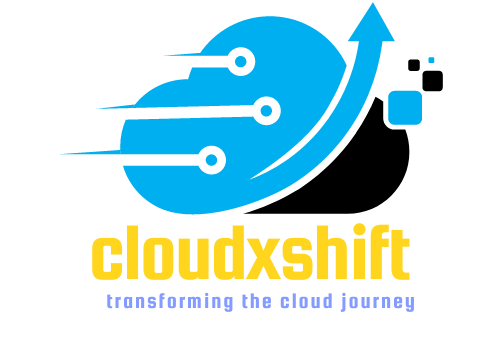
Top 10 DevOps Trends in 2023
As we move towards 2023, the world of technology is rapidly evolving and DevOps has emerged as a key enabler for organizations looking to achieve operational efficiency and agility. DevOps is not just a methodology, it’s a culture that promotes collaboration, automation, and continuous improvement. In this article, we’ll explore the top DevOps trends and predictions that will shape the industry in 2023 and help organizations stay ahead of the curve
- Automation will continue to be a driving force: In 2023, automation will continue to be a driving force in the DevOps space. Automation of repetitive, manual tasks is a key component of DevOps, and with the rise of AI and machine learning, organizations will be able to automate more complex tasks. Intelligent automation, powered by AI and machine learning, will enable organizations to make better decisions and optimize their processes for maximum efficiency. For instance, AI-powered test automation will enable organizations to automate testing, reduce the risk of errors, and speed up their testing cycles. Similarly, machine learning algorithms can be used to automate incident management, enabling organizations to identify, diagnose, and resolve incidents faster.
- Microservices will gain wider adoption: Microservices architecture allows organizations to break down complex applications into smaller, more manageable components that can be developed, deployed, and scaled independently. In 2023, we will see wider adoption of microservices, which will enable faster development and deployment of applications. Microservices architecture enables organizations to iterate quickly and respond to changing customer needs. With microservices, developers can work on smaller, more focused components, which can be developed and deployed independently. This means that organizations can make changes to their applications without affecting the entire system, reducing the risk of errors and minimizing downtime.
- Security will be integrated into the DevOps process: Security has always been a key concern for organizations, and in 2023, we will see a greater focus on integrating security into the DevOps process. DevSecOps, which combines DevOps and security, will become more mainstream, with organizations implementing security checks at every stage of the development pipeline. DevSecOps emphasizes the importance of security throughout the software development lifecycle, from design to deployment. It involves integrating security into the development process, using security testing tools and techniques to identify vulnerabilities and implementing security controls to mitigate risks. In 2023, DevSecOps will become more prevalent as organizations realize the importance of building security into their applications from the ground up.
- Kubernetes will continue to dominate: Kubernetes has emerged as the de facto standard for container orchestration, and in 2023, it will continue to dominate the market. With the rise of hybrid and multi-cloud environments, Kubernetes will enable organizations to manage and orchestrate their applications across multiple platforms. Kubernetes provides a powerful platform for managing containerized applications. It enables organizations to deploy and manage applications at scale, providing a consistent and reliable environment for developers. With the rise of hybrid and multi-cloud environments, Kubernetes will become even more important, as it enables organizations to manage their applications across multiple platforms, ensuring consistency and portability.
- DevOps will become more data-driven: In 2023, DevOps will become more data-driven, with organizations leveraging data to make informed decisions about their development and deployment processes. Data analytics will enable organizations to identify bottlenecks, optimize performance, and improve overall efficiency. Data analytics provides valuable insights into the performance of applications and the efficiency of development and deployment processes. By analyzing data from various sources, including logs, metrics, and user feedback, organizations can identify areas for improvement and make data-driven decisions about their DevOps processes.
- The rise of GitOps: GitOps is a methodology that leverages Git as a single source of truth for defining and managing infrastructure and applications. In 2023, we will see a greater adoption of GitOps, which will enable organizations to manage their infrastructure and applications as code, and ensure consistency and repeatability across different environments. GitOps provides a powerful framework for managing infrastructure and applications as code. By using Git as a single source of truth, organizations can ensure consistency and repeatability across different environments, making it easier to manage complex infrastructure and applications.
- DevOps will become more collaborative: In 2023, we will see DevOps becoming more collaborative, with increased collaboration between developers, operations teams, and other stakeholders. Collaboration is key to ensuring the success of DevOps initiatives, and in 2023, we will see more tools and processes that enable collaboration across different teams and departments. Collaboration is critical for successful DevOps initiatives. Developers, operations teams, and other stakeholders need to work together to ensure that applications are developed, tested, and deployed smoothly. In 2023, we will see more collaboration tools and processes that enable teams to work together more effectively, such as shared dashboards, collaborative coding environments, and integrated communication tools.
- DevOps will be increasingly integrated with business processes: In 2023, we will see DevOps being increasingly integrated with business processes, with organizations leveraging DevOps to drive digital transformation and innovation. DevOps will be seen as a key enabler of business agility and will be integrated into the broader business strategy. DevOps is not just a set of tools and processes; it is a mindset that drives continuous improvement and innovation. In 2023, we will see more organizations recognizing the strategic value of DevOps and integrating it into their broader business strategy. DevOps will be used to drive digital transformation and innovation, enabling organizations to respond quickly to changing market conditions and customer needs.
- Cloud adoption will accelerate: Cloud adoption has been steadily increasing over the past few years, and in 2023, it will continue to accelerate. Cloud computing provides a flexible, scalable, and cost-effective platform for deploying and managing applications, and with the rise of hybrid and multi-cloud environments, cloud adoption will become even more important. Cloud adoption enables organizations to deploy and manage applications quickly and easily, without having to invest in costly infrastructure. With the rise of hybrid and multi-cloud environments, cloud adoption will become even more important, as organizations seek to manage their applications across multiple platforms.
- Continuous delivery will become the norm: Continuous delivery is a key component of DevOps, enabling organizations to deliver high-quality software quickly and efficiently. In 2023, we will see continuous delivery becoming the norm, with more organizations adopting continuous delivery practices to accelerate their software delivery cycles. Continuous delivery enables organizations to release software quickly and reliably, reducing the time to market and improving the overall customer experience. In 2023, we will see more organizations adopting continuous delivery practices, leveraging automation and other tools to streamline their software delivery processes.
In conclusion, these DevOps trends and predictions will enable operational efficiency and agility in 2023. Automation, microservices, security, Kubernetes, data analytics, GitOps, collaboration, business integration, cloud adoption, and continuous delivery are all key trends that will shape the DevOps landscape in 2023. Organizations that embrace these trends and adopt DevOps best practices will be well-positioned to drive innovation, improve efficiency, and gain a competitive advantage in the market.




